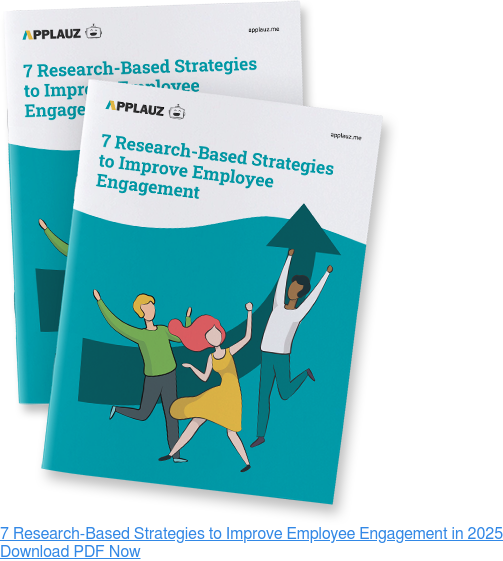Although team building activities are a great way to “break the ice” between new team members and add fun into the average workday, they often fail to foster effective, long-term collaboration.
Why? Maybe because, playing paintball or taking part in a corporate scavenger hunt, as entertaining as it might be, teaches us little about result-oriented, professional collaboration.
So how exactly can you maximize team performance?
A recent study, commissioned by Mars Inc., developed a High-Performance Collaboration Framework to maximize team effectiveness and collaboration. Combined with an Employee Recognition Program, this method can be used to foster long-lasting partnerships and employee engagement.
Challenges to Team Collaboration
Mars Inc., a family-owned multi-billion dollar global business, felt that their HR procedures caused wasteful spending and may have also led to the questionable use of company time.
Concerned by this perception, the company launched a full-scale inquiry into its Human Resources practices. The objective Mars was after was to preserve what actually, measurably worked, while at the same time wholly discarding what didn’t.
Through multiple surveys and hundreds of employee interviews, after panning for gold in the murky waters of their HR practices, they derived three nuggets of golden insight:

1. Teams don’t collaborate enough, and they know it
Interestingly, the study revealed that employees were well aware of how important collaboration at work was, but they simply didn't know how to achieve it effectively.
2. Collaboration starts with individual motivation and not “team” building
Collaboration, the study found, does not start with group interventions, but rather with a focus on individual employee motivation. The results of their inquiry clearly demonstrated that in order to effectively work together, employees needed to feel they each brought their professional expertise to the table. Moreover, they needed to feel that their contribution was relevant and well-received.
3. Leaders don’t value and reward team collaboration
Performance rating systems, as great as they may be for individual employee assessment, don’t actually recognize and reward teamwork. So how can employees value collaboration when they’re only ever (if at all) recognized for their personal achievements?
If you don’t recognize and reward team successes, how can an employee truly appreciate teamwork?

Mars Inc.’s High-Performance Collaboration Framework
Upon completing the research stage, Mars Inc. decided to get the feedback of its employees on two essential questions, asked in two separate sessions:
- Why is their collaboration essential to achieving business results?
- Which specific tasks would require collaboration to deliver those results?
Employees surveyed proceeded by developing a list of tasks that could only be completed independently and those which necessitated group collaboration.
The insights of the study led to an organizational shift that had Mars focus on changing their HR strategies. Mars Inc. wanted to ensure that the team as a unit was celebrated, and that along with shared accountability came the feeling of shared success for a job well done.
Impressive Results
After implementing these new insights into their HR, Mars registered a 33% growth within approximately 12 months. Asked how the study had helped the company improve collaboration, the manager replied: “massively.”
Mars realized that by simply engaging their workforce and establishing a positive and welcoming dialogue around their practices and policies, they unearthed buried truths and found the answers they were looking for.
Let’s not forget, however, that employee team building activities wouldn’t matter if you’re already dealing with a disengaged workforce. In fact, there cannot be long-lasting team productivity if employees are not themselves productive, fulfilled, understood, valued, and recognized.

Applying the "Mars Method" in Your Company
Not every company has the financial resources of Mars Inc. However, affordable solutions exist for companies that wish to implement Recognition Programs that take care of employee surveys, rewards, team communication, and a whole lot more.
One of them, Applauz Recognition, which won “Best Service Provider” at the 2018 HR Awards, can help you do the following:
Survey employees and measure your success
As the Mars Inc. study revealed, team building activities cannot replace consistent and institutionalized employee engagement initiatives. If you think your company suffers from a lack of collaboration, we recommend using Employee Pulse Surveys to identify the issues at hand. In fact, free software such as Applauz Recognition can help you poll your employees and launch a constructive conversation that can make a change. The platform allows you to launch surveys and measure what needs to be improved over time, all for free.
Recognize teamwork
The Mars Inc. study revealed that one of the reasons why teams don’t collaborate well was that they lacked motivation and needed more vigorous incentives to do so.
Teams need to be supported and rewarded when they succeed. Otherwise, everyone will want to keep playing solo. Applauz Recognition allows your employees to congratulate each other for their achievements on your own custom company NewsFeed (think Facebook but with HR focused features). It also allows you to designate managers who can, in turn, award points to their employees. Employees can then choose to redeem their reward points for valuable merchandise via a dedicated employee rewards platform.
Final Thoughts
In the end, team productivity highly depends on employee productivity, which itself depends on positive and ongoing effective employee engagement practices.
To foster real team collaboration, your company must keep working hard to keep its employees engaged and happy at work.


